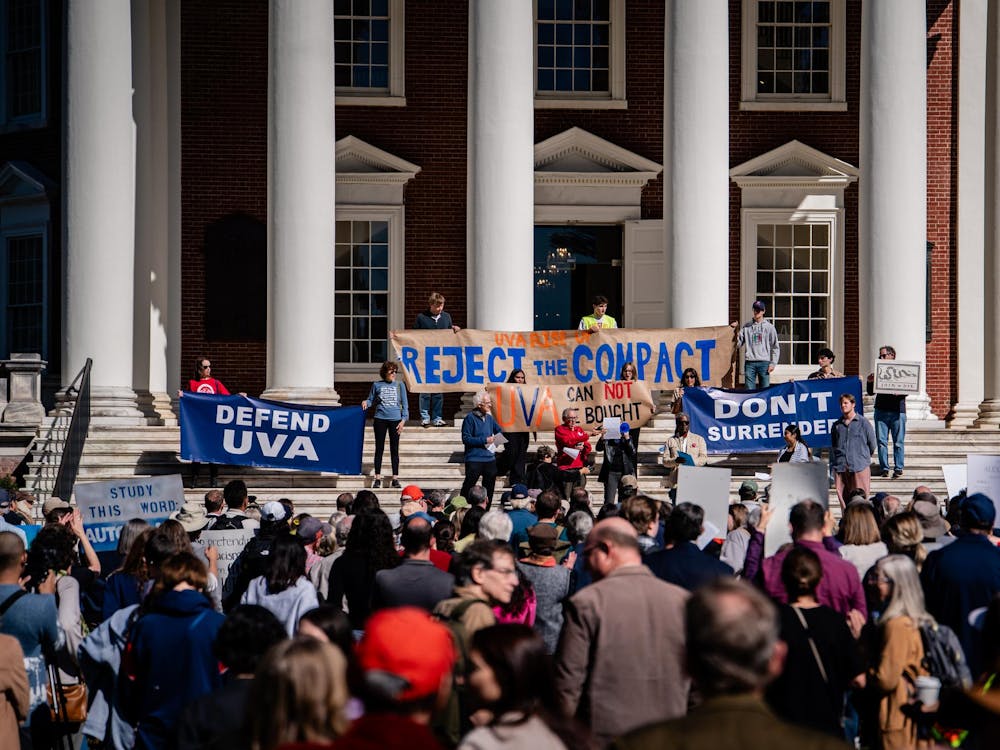I have been proud to be a Wahoo lately. University Dining has recently been promoting vegetarianism through initiatives such as “Meatless Mondays” and “Vegan Love.” As a vegetarian, I’ve been particularly encouraged by these efforts. I absolutely endorse the University’s attempts to make vegetarian options more accessible and market vegetarianism as a valid lifestyle choice. To me, the decision to be a vegetarian was as much moral as it was environmental and nutritional. But I’d like to focus on the latter two benefits to explain why more people should try to eat less meat, or even cut it out entirely.
It’s not hard to imagine the strain factory farming puts on our planet. The sheer amount of livestock we raise is tremendous, and all of those animals need to be given land space and food, which requires enormous sacrifices. For instance, 60 to 70 percent of rainforest destruction in Brazil is done for the sake of creating pastures. On a world scale, consider this: Grazing lands occupy 26 percent of the ice- and water-free surfaces of the Earth, according to a 2008 article published in Environmental Magazine. Animals raised for meat take up a lot of space. They also demand a lot of food. In the United States, we feed 90 percent of our soy crop, 80 percent of our corn, and 70 percent of our grain directly to cattle.
Besides contributing to inefficient land use, the meat industry pollutes heavily. Most people are aware of the negative ramifications of gas emissions, but they probably do not know that 18 percent of all greenhouse gas emissions are a result of raising livestock. In addition, in 1997, the U.S. Department of Agriculture estimated that the meat industry produces 1.4 billion tons of waste each year — making five tons a year attributable to every U.S. citizen.
When you consider these staggering figures, the process of raising cattle seems wasteful and selfish, especially when it is so unnecessary. I speak from experience when I say that a person can absolutely live without meat. It is true that meat can supply us with iron and protein, which are necessary nutrients. But foods such as dark green vegetables, beans, nuts, soy and dairy products can readily supply these nutrients too. In fact, many nutritionists contend that meat-eaters tend to get too much protein, which is actually detrimental to your health. The American Dietetics Association endorsed vegetarianism in a 2009 study, stating that “a vegetarian diet is associated with a lower risk of death from ischemic heart disease” and “vegetarians also appear to have … lower blood pressure and lower rates of hypertension and type 2 diabetes than nonvegetarians. Furthermore, vegetarians tend to have a lower body mass index and lower overall cancer rates.” The apparent health benefits of vegetarianism are most likely because vegetarians consume lower levels of saturated fat and cholesterol. Vegetarianism also eliminates the ingestion of all the hormones and chemicals in meat products.
At this point you may be thinking that being a vegetarian sounds good, but is easier said than done, especially when you’re a college student constrained by budget and the culinary whims of dining halls. In my experience, though, eating vegetarian is simply a question of changing small parts of your meal, not of sacrificing taste or indulgence completely. Leave the turkey off your sandwich, but dress it up with lots of vegetables and spreads. Try tofu on your stir fry instead of chicken. Take plain white or brown rice and complement it with a tortilla, beans, tomatoes and cheese from the salad bar. Apples and peanut butter is a delicious staple for easy protein. Grab a slice of cheese pizza rather than pepperoni. Give O’Hill the benefit of the doubt and actually go to one of their vegan-themed meals.
Because we do not need meat to live healthily it seems almost ridiculous to indulge in such a luxury when all of the resources spent on it could be more effectively distributed. We use only 20 percent of our corn crop for human consumption and replanting. Think of how many additional people we could feed with the corn we already grow, if no one expected to be fed meat. We should also consider the fact that if we reallocated our land to be used for plant harvesting instead of cattle raising, we would be using the land much more efficiently. On one acre of land you can grow 40,000 pounds of potatoes — and only 250 pounds of beef.
I do not expect every single person to give up meat entirely. But I do believe that to cut meat out of your diet once or twice a week is an easy change to make, and I think the facts aligned in favor of reducing our collective meat intake are fairly compelling. In light of this information, I applaud the University’s efforts to support vegetarianism and also the individual efforts of my veggie-loving peers.
Ashley Spinks column appears Mondays in The Cavalier Daily. She can be reached at a.spinks@cavalierdaily.com.






